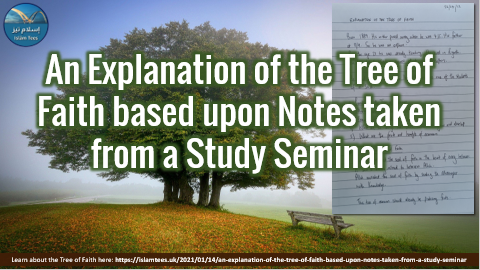Covered in this lesson:
Conclusion of answer to question 88 regarding the meaning of believing in the Messengers.
Question 89 – Is there agreement between the call of all the Messengers in terms of what they command and what they prohibit? – and its answer.
Question 90 – What is the evidence that the Prophets and Messengers were all agreed upon the foundation (of Tawheed)? – and its answer.
Question 91 – What is the evidence that the legislations differed? – and its answer.
Question 92 – Has Allāh mentioned all of the stories of the Messengers in the Qur’ān? – and its answer.
Question 93 – How many of them have been named in the Qur’ān? – and its answer.
Question 94 – Who are Al-Uluw Al-‘Azm from amongst the Messengers? – and its answer.
Question 95 – Who is the first of the Messengers? – and its answer.
Question 96 – When was the differing (regarding worshipping Allāh alone)? – and its answer.
Question 97 – Who is the seal of the Prophets? – and its answer.
Listen to the lesson/download here:
Lesson 45.mp3
or on SoundCloud here:
Lesson 45 on SoundCloud
Note: this is actually lesson 45 and not 44 as mistakenly stated towards the beginning. Due to the slip there is a bit of duplication in the questions and answers with the previous lesson.
Please share, comment and subscribe (it's free!)
Like this:
Like Loading...













































































